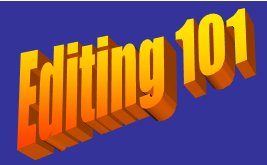Dreams have no shape, they are whispers on the wind that tickle your senses and tease your mind. Full of possibilities, dreams are so easy because they don’t speak to the work required to achieve them. They’re ghosts and mirages that are just out of reach, easier to grasp because they seem to come from that part of you that creates. That part of you that still believes fairies are real and the boogeyman does exist. It’s not quite the same well that you draw your creativity from but close enough.
Your family and friends know “you” and the roles you play; they can’t get inside your head but they know you for who you are right now, right this minute. Your bank account knows your financial situation, because the dollars and cents add up telling you whether or not you’re really “making it” as a writer. Only you know how your dollars match your dreams; the two are not mutually exclusive because you understand that money is a means to an end.
But you’re stubborn, and you have a dream of selling lots of books and earning beaucoup dollars. Have you planned to get their with your long-term goals?
Long-term goals are two parts planning, a healthy dose of discipline, a sprinkling of wishes and a lot of flexibility. But those longer-term goals don’t come without achieving the balance between responsibility and creativity: you have to think outside the box and sometimes, you have to forget what money you have to do it.
Read More…

 The tendency to turn down projects is to say something generic like, “I’m booked working on other projects.” If you have a blog, online journal, or socially network on MySpace, LinkedIn, Facebook, etc. and you put yourself out there saying that you’re looking for work, make sure that your public profile matches what you’re telling people who want to hire you. This may seem like a no-brainer, but please: do not make the mistake of begging people for work and then turning someone down because you don’t want to work for them. The “I’m-too-busy” excuse really makes you look bad–especially when the person you turned down reads what you’re up to. Of course, there is the flip side when you are “that” busy. When that happens, be clear and be honest; there is no guarantee that the other person on the other end of the computer won’t misinterpret what you’re saying, but there is really very little you can do about that.
The tendency to turn down projects is to say something generic like, “I’m booked working on other projects.” If you have a blog, online journal, or socially network on MySpace, LinkedIn, Facebook, etc. and you put yourself out there saying that you’re looking for work, make sure that your public profile matches what you’re telling people who want to hire you. This may seem like a no-brainer, but please: do not make the mistake of begging people for work and then turning someone down because you don’t want to work for them. The “I’m-too-busy” excuse really makes you look bad–especially when the person you turned down reads what you’re up to. Of course, there is the flip side when you are “that” busy. When that happens, be clear and be honest; there is no guarantee that the other person on the other end of the computer won’t misinterpret what you’re saying, but there is really very little you can do about that. Congratulations! You’ve just finished your project or story. Now what?
Congratulations! You’ve just finished your project or story. Now what?